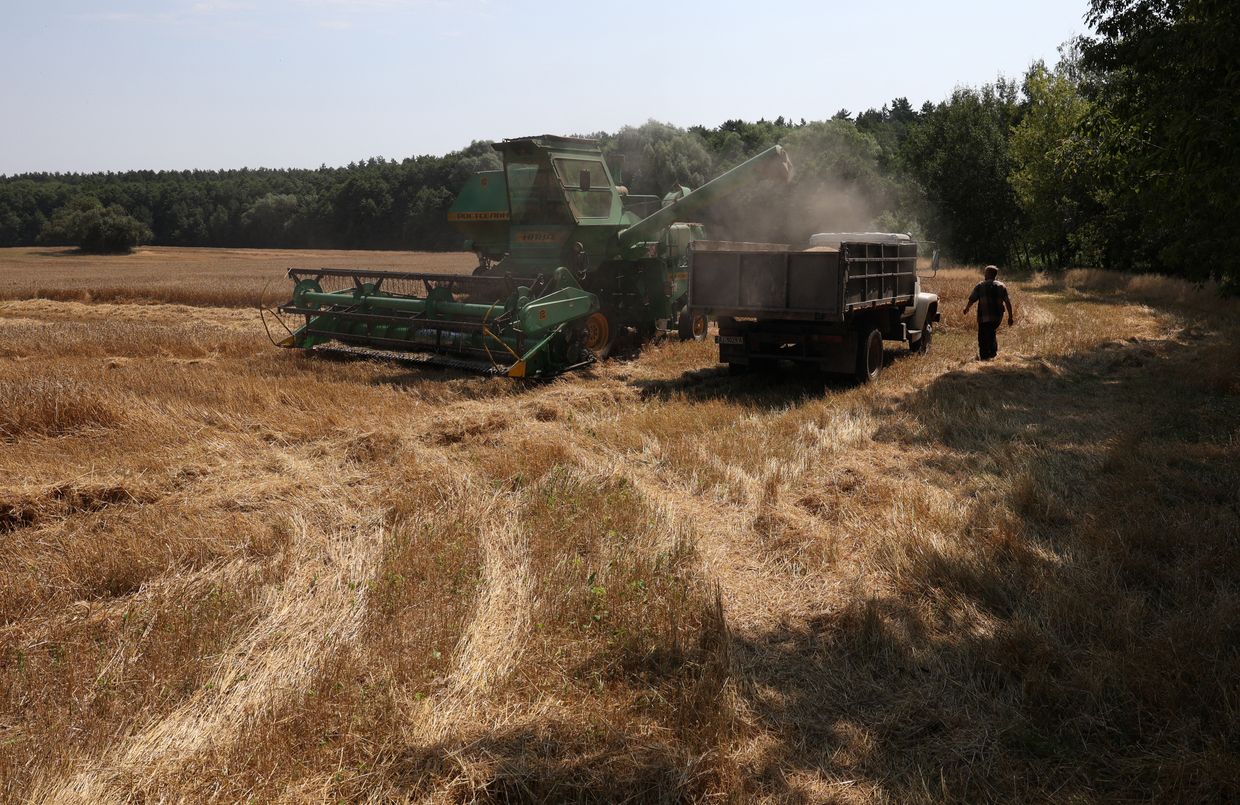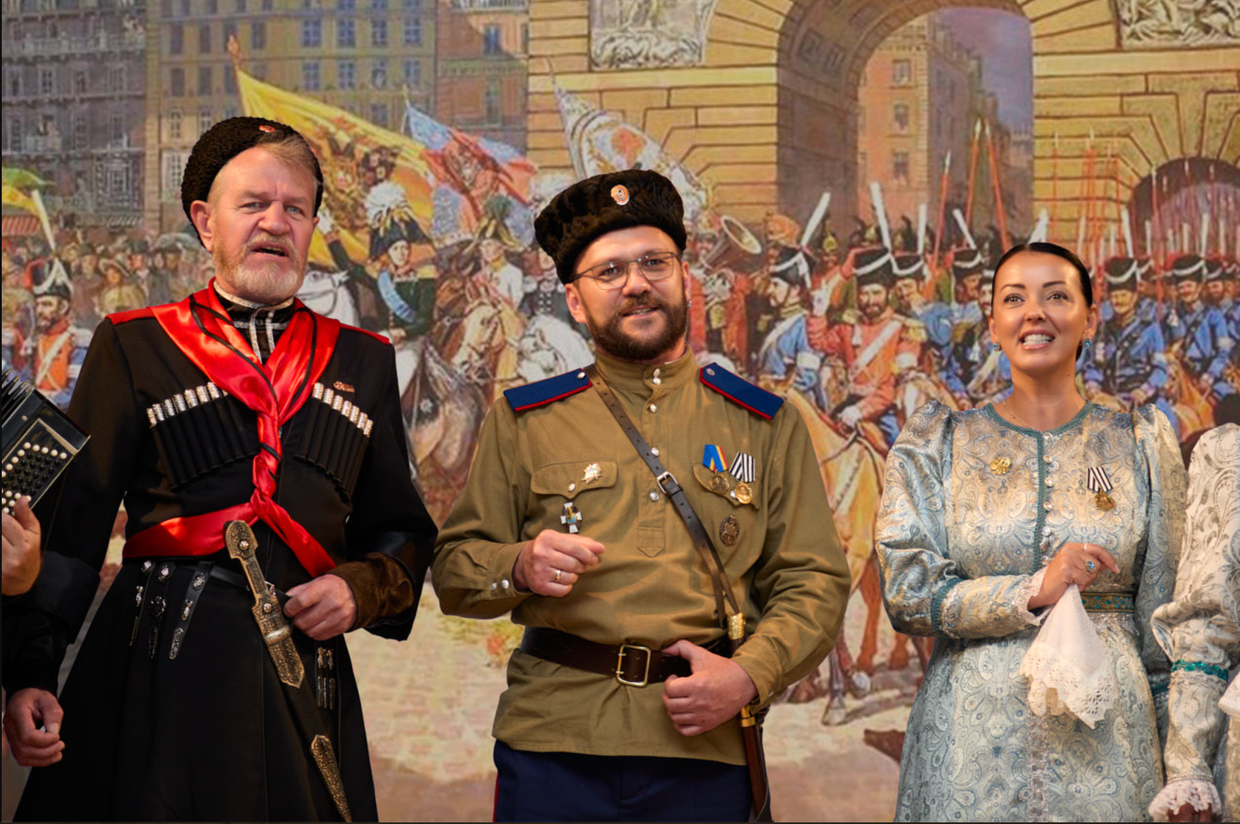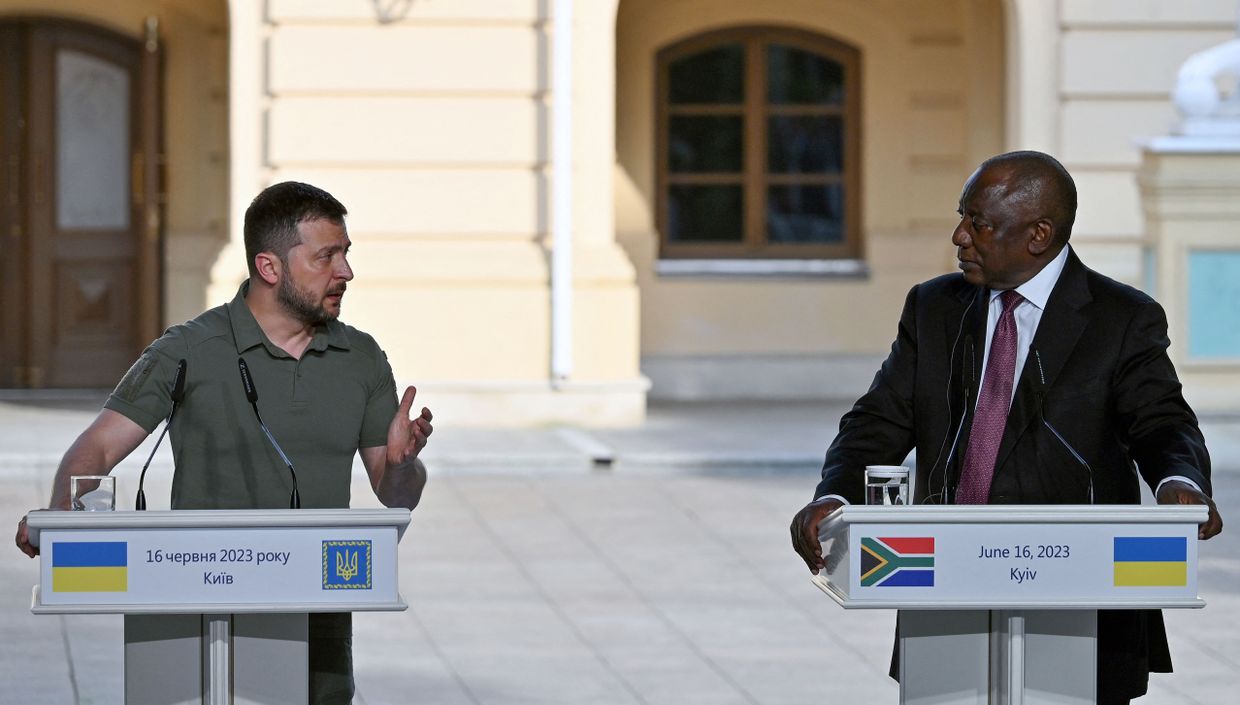In African universities, Russia’s war against Ukraine finds new supporters

Demonstrators hold Russian flags during a march in support of Russian and Chinese presence in Bangui, Central African Republic, on March 22, 2023. (Barbara Debout / AFP via Getty Images)

Ngotho Gichuru
Ph.D. student at Makerere University in Kampala, Uganda
The halls of academia have long been considered sanctuaries of critical thinking, intellectual discourse, and the pursuit of truth. Universities across the globe pride themselves on fostering environments where diverse perspectives can be examined, debated, and understood through the lens of scholarly rigor.
However, the Russian invasion of Ukraine has exposed a troubling trend within certain African academic institutions: a marked bias toward Russian narratives that undermines the very principles of academic integrity and intellectual honesty that universities claim to uphold.
This bias is not merely an abstract concern about geopolitical alignment; it represents a fundamental betrayal of the educational mission that universities exist to fulfill. When academic institutions abandon objectivity in favor of political positioning, they fail their students, their communities, and the broader pursuit of knowledge that defines higher education.
The stakes could not be higher as universities shape the minds of future leaders, policymakers, and citizens who will navigate an increasingly complex global landscape.
When African academics present papers at international conferences that uncritically repeat Russian talking points, they undermine their own credibility and that of their institutions.
Across various African universities, a concerning pattern has emerged since Russia's full-scale invasion of Ukraine in February 2022. Rather than maintaining the scholarly distance necessary for objective analysis, numerous institutions have embraced narratives that closely align with Russian state propaganda.
This manifests in multiple ways: academic conferences that present one-sided perspectives on the conflict, research publications that uncritically amplify Moscow's justifications for the war, and classroom discussions that frame the invasion through the lens of Western imperialism rather than examining it as a clear violation of international law.
The roots of this bias are complex and multifaceted. Historical ties between the Soviet Union and various African nations during the Cold War era have created lingering sympathies that some academics appear unable to separate from contemporary realities.
Additionally, legitimate grievances about Western colonial history and ongoing concerns about neocolonialism have been exploited to create false equivalencies between Russian aggression and Western influence. Some academics have conflated criticism of Western policies with support for Russian actions, creating a dangerous intellectual blind spot.
Economic factors also play a role. Russian investment in African educational infrastructure, scholarship programs, and research partnerships have created institutional relationships that some universities appear reluctant to jeopardize through objective analysis of Russian actions. This economic dependence has compromised academic freedom, creating situations where financial considerations override scholarly integrity.


The influence of Russian state media and disinformation campaigns cannot be overlooked. RT (formerly Russia Today) and Sputnik have specifically targeted African audiences with sophisticated propaganda operations designed to shape public opinion.
Unfortunately, some academics have proven susceptible to these narratives, either through genuine belief or through a misguided sense that amplifying Russian perspectives represents intellectual diversity.
When universities abandon objectivity, the consequences extend far beyond the ivory tower. Students who receive biased education are ill-equipped to understand complex global issues, make informed decisions as citizens, or contribute meaningfully to policy discussions. They graduate with skewed worldviews that may influence their professional and personal choices for decades to come.
The credibility of African scholarship suffers when institutions are perceived as politically motivated rather than academically rigorous. This damages the reputation of African universities in international academic circles, potentially limiting collaboration opportunities, research partnerships, and the mobility of African scholars.
When African academics present papers at international conferences that uncritically repeat Russian talking points, they undermine their own credibility and that of their institutions.
True intellectual independence requires the courage to analyze situations objectively, regardless of political pressures or historical sympathies.
Perhaps most importantly, bias in academia contributes to the broader information warfare that authoritarian regimes wage against democratic values and international law. Universities that should serve as bastions of critical thinking instead become unwitting participants in propaganda campaigns designed to undermine global stability and human rights.
The situation becomes particularly problematic when considering the humanitarian dimensions of Russia's war against Ukraine. Hospitals, schools, and civilian infrastructure have been deliberately targeted by Russian forces, creating a refugee crisis that has displaced millions of people.
When universities fail to acknowledge these realities or attempt to justify them through geopolitical frameworks, they implicitly endorse violence against civilians and violations of international humanitarian law.
African universities must recommit to their fundamental mission of pursuing truth through rigorous scholarship rather than serving as vehicles for political propaganda.
This transformation requires several concrete steps. First, universities must establish clear guidelines for faculty regarding the difference between legitimate academic analysis and political advocacy.
While scholars should be free to examine controversial topics from multiple perspectives, they must do so within frameworks that respect evidence, logic, and established principles of international law.
Second, African universities must diversify their funding sources and partnership arrangements to reduce dependence on any single country or ideological bloc. The current situation, where some institutions appear reluctant to criticize Russian actions due to financial relationships, represents an unacceptable compromise of academic independence.
Third, universities must invest in media literacy and critical thinking education for both faculty and students. The susceptibility of some academics to Russian disinformation campaigns reveals significant gaps in the ability to evaluate sources, identify propaganda techniques, and distinguish between credible and manipulated information.
Fourth, African universities must strengthen their commitment to international academic standards and peer review processes. When scholars publish work that fails to meet basic standards of evidence and argumentation, it reflects poorly on the entire African academic community. Rigorous peer review can help ensure that African scholarship maintains the quality necessary for international respect and collaboration.
The pro-Russian bias evident in some African universities represents more than just a misguided political position; it constitutes a surrender of intellectual independence to foreign propaganda.
This is particularly ironic given that many of these same institutions pride themselves on their commitment to African independence and self-determination.

True intellectual independence requires the courage to analyze situations objectively, regardless of political pressures or historical sympathies. It means acknowledging uncomfortable truths about allies while maintaining the ability to critique opponents fairly. Most importantly, it means refusing to sacrifice scholarly integrity for political convenience.
African universities have a proud tradition of intellectual leadership, from their role in anti-colonial movements to their contributions to post-independence development. This legacy is endangered when institutions abandon their commitment to truth in favor of political positioning.
The current moment represents a critical test of whether African higher education will live up to its historical role as a force for enlightenment and progress.
The stakes extend beyond the immediate question of how to analyze Russia's war against Ukraine. Universities that compromise their integrity on this issue signal their willingness to subordinate academic standards to political considerations more broadly. This has implications for everything from scientific research to economic analysis to social policy development.
African universities stand at a crossroads. They can continue down the path of political bias, sacrificing their integrity for short-term political or economic gains, or they can lead by example by recommitting to the principles of scholarly objectivity and intellectual honesty that define higher education at its best.
The choice is not merely about how to analyze one particular conflict; it is about the fundamental purpose and character of African higher education. Universities that choose bias over objectivity risk becoming irrelevant to serious academic discourse and ineffective in their mission to educate future leaders.
The world needs African universities that can contribute meaningfully to global conversations about complex issues. This requires institutions that maintain high scholarly standards, resist political pressure, and commit themselves to the pursuit of truth regardless of where it leads.
Editor’s Note: The opinions expressed in the op-ed section are those of the authors and do not necessarily reflect the views of the Kyiv Independent.












